Lakeland Behavioral Health System helps adolescents and teens struggling with mental health disorders build a strong foundation for long-term recovery.
Creating Unique Strengths
Residential Treatment Programs represent a blend of the traditional medical, cognitive, behavioral, and psycho-educational treatment models.
Our female residential program at Lakeland’s treatment clinic in Missouri is for girls age 9 to 17. Most of our residents have been in other placements but have not been successful with their treatment. Our program is designed to involve the resident in daily therapeutic activities within a controlled environment. She will learn new and different skills formulated specifically for her. She will be able to practice those skills under the supervision of skilled, compassionate staff.
The girls admitted to our behavioral treatment clinic have a psychiatric diagnosis with a long-standing history of displaying behavior problems in their peer groups, school, community and/or their families. Many of the girls treated on this unit are considered to be a danger to themselves or others, due to their emotional or mental instability. They may have an extensive history of hospitalizations or placements, failure in outpatient truancy, or high-risk behaviors. Our treatment program is designed to help Focus On Creating Unique Strengths (FOCUS).
Clinical Treatment Team
The multidisciplinary treatment team at Lakeland’s treatment clinic meets daily to access the needs of each resident. The team consists of Psychiatrist, Therapist, Nurse Manager, Unit Nurse, Unit Manager, Case Manager, Behavioral Health Technician, Teacher, and Recreational Therapy Therapist.
Our Therapy Groups
The Trauma Therapy groups at Lakeland’s treatment clinic are presented by licensed therapists who are the same therapists who provide individual therapy to your child.
- Weekend Goal Setting/Goal Outcome – On Friday the individual chooses a goal to achieve for the weekend and on Monday the group processes the outcome with the therapist.
- Family Issues – The group discusses family issues that may have contributed to their diagnosis.
- AT – Activity Therapy, led by a certified physical therapist or licensed therapist. This group is usually held in one of our outdoor recreational areas as weather permits and involves organized athletic activities.
- Anger Management – This group is led by qualified staff and focus is directed at why anger happens and how to better manage it.
- Problem Solving – Residents are guided through a process to help them learn to solve problems without aggressive behavior.
- Life Skills – Works to develop the skills the residents will need post-treatment. Interviewing for a job, filling out an employment application, household budgeting are a few of the topics presented.
- Self Image – Emphasis is placed on the residents to see themselves in a more positive light and learning how to maintain that outlook.
- Character building – Residents discuss why it is important to have strong character and how to build it.
- Relationships – Identifies key principles and boundaries to form and maintain a good relationship.
- Cooking Group – The resident will learn basic cooking techniques while practicing their social skills.
- Coping Skills – Several methods of coping with stress and other crisis events are presented to the resident.
- Personal Reflection – A group to encourage the resident to reflect on her life and how to work to improve it.
- Assertiveness – The residents are taught the varied ways to respond socially in an assertive manner.
- Creative Arts – Residents are provided craft materials and working together create different articles.
The FOCUS program at Lakeland’s behavioral health clinic features flexible treatment with adaptive programming. When the need arises, changes to programming are made while staying within regulatory compliance.
We have a five tier phase system which provides increasing privileges as the resident moves to the next phase. Privileges include increased phone times, increased weekly allowance, outings.











